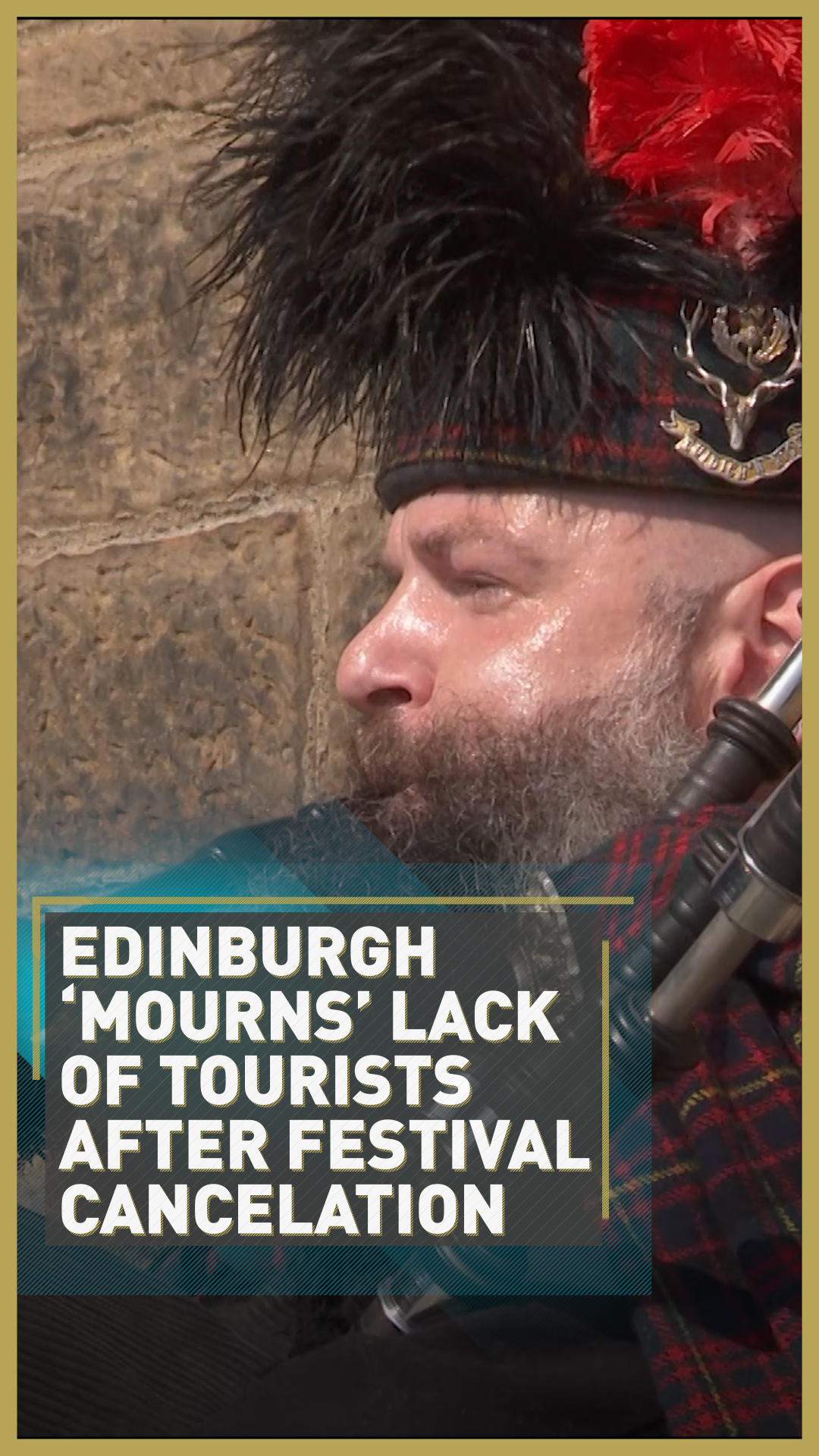01:54

In ordinary times, August is an incredibly busy time for Edinburgh. Every year, millions of visitors flock the streets of the Scottish capital for one of the world's largest showcase festivals. But the COVID-19 pandemic means that such major gatherings are out of the question this year.
The lack of tourists is having a real impact on businesses in the city as well as its cultural landscape. The Centre for Economics and Business Research thinks the direct and indirect impact of the Edinburgh Festival is worth almost $1.4 billion.
"The city has been in lockdown since the end of March and we estimate the economic impact of that is in excess of £1 billion [$1.4 billion]," said Donald Emslie, chair of the Edinburgh Tourism Action Group, an official body that promotes the Scottish capital.
"Every city is suffering the same issue. So what we have done is come together as a city: all of the operators that provide the tourism as well as the festivals, we've come together just to remind people that Edinburgh's still got a lot to offer and it's still the festival city."
China is one source market that Edinburgh is increasingly targeting, according to Emslie: "We had 250-300,000 Chinese tourists last year and it's very, very important for us."
Keeping the flame burning
For more than 70 years, several major festivals have taken place in the city, often throughout August. They include the Edinburgh Fringe Festival – showcasing comedy, arts and culture – and the Edinburgh International Book Festival.
Both are going online this year, and according to book festival director Nick Barley, it's essential to stay connected to global audiences.
"Instead of the 1,000 writers who turn up at the festival here every year, we've got 150 events featuring about 200 writers, all taking place online," he told CGTN Europe.
However, the cancellation of physical events is having a strong financial impact: "In the process, we've lost £1 million [£1.4m] of ticket sales and £1 million worth of book sales. So that's 50 percent of our income gone at a stroke."
The aim for Barley is to keep the "flame burning" until visitors can return.

The sky above Edinburgh Castle is lit up by My Light Shines On, an outdoor light installation for the 2020 Edinburgh International Festival. /VCG
The sky above Edinburgh Castle is lit up by My Light Shines On, an outdoor light installation for the 2020 Edinburgh International Festival. /VCG
But it's not all gloomy: other businesses in the city say tourism is beginning to pick up. The Witchery By The Castle is one of Edinburgh's best-known restaurants and has a number of suites where guests can stay overnight.
In a walk around the 16th-century property, general manager Steven Allam, says business is returning: "Since we reopened in mid-July, we've been at full capacity in the dining rooms, all the tables that we have are all sold out at lunch and dinner each day."
That said, because of COVID-19 safety guidelines, there are fewer tables than usual to allow social distancing, and though trade is returning, it's not business as usual.
"It's more like a February or March kind of feeling rather than an August," said Allam. "August is very much our busiest time, it's full non-stop from beginning to end, but we're not getting that."

Tables reorganized to respect social distancing inside The Witchery in Edinburgh. /Job Murray/CGTN
Tables reorganized to respect social distancing inside The Witchery in Edinburgh. /Job Murray/CGTN
Like many in the city, Allam understands why the festivals have been called off: "I think it was the right decision, we need to make sure people are kept safe, so it's impossible to do that with millions of people in the city."
Tourism is a major driver of Edinburgh's economy and without the festivals, its historic boulevards and alleyways feel particularly quiet at the moment – a feeling that's pronounced by the double blow of a global health pandemic and a lack of visitors.
But for the stakeholders who rely on the appeal of Scotland's capital, many are looking to get through the coming months and see the light at the end of the tunnel. The city, almost 900 years old, is confident that it will soon have its rich cultural offerings spilling out onto its streets once again.